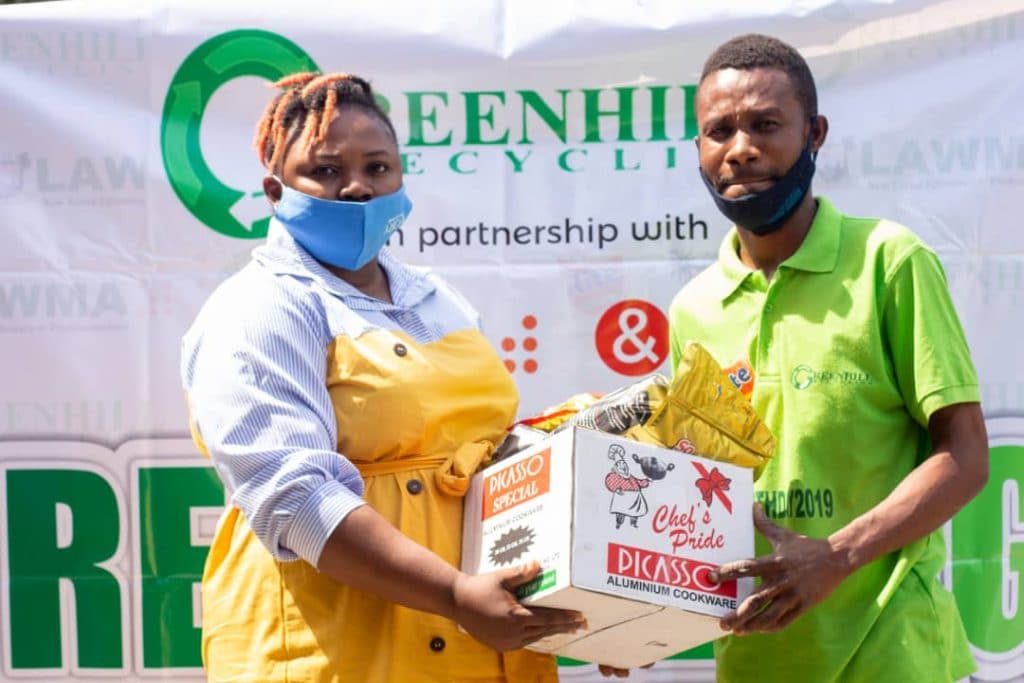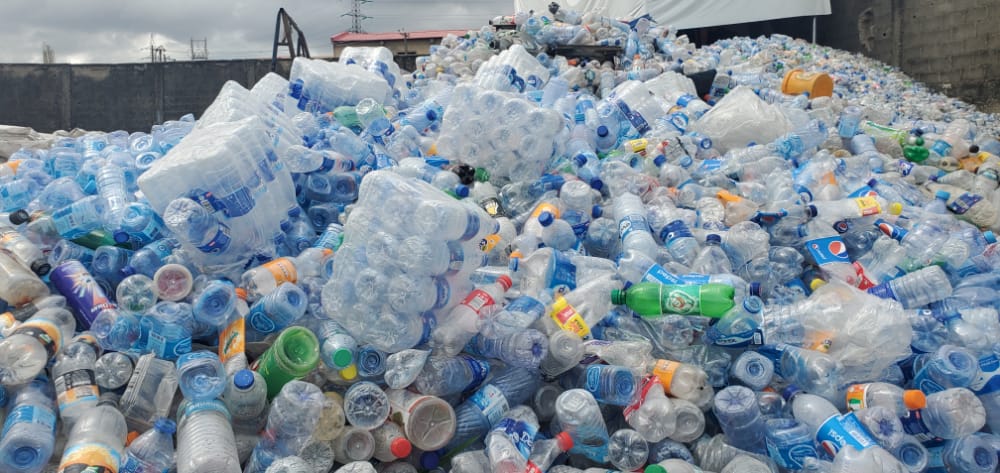It took a mightily entrepreneurial mind of Mariam Lwani to identify an idea which many take for granted and turn it into a thriving business operation.
Lwani capitalised on what has been an enduring problem of bulk litter and waste, a challenge that has long been bedevilling most parts of the Nigerian big and burgeoning slums.
She founded Greenhill Recycling to mobilise the communities around Lagos in alleviating the deteriorating problem of street refuse and also create jobs for the poverty-stricken communities in the affected areas.

In addition, the project also increased waste management and environmental awareness among the residents. They no longer saw waste management as a sole responsibility of the authorities but as a challenge that requires their active participation and involvement.
Lwani’s initiative has also brought huge relief to the residents of the slums who were consistently exposed to diseases due to the filthy environment. Before the recycling project was launched, communities resorted to burning their waste which released carbon dioxide into the already putrid atmosphere.
Furthermore, the Greenhill Recycling project fits in well with global initiatives aimed at protecting the environment by adopting practices that promote sustainable and greener future.
The local communities have warmly embraced it and see it not only as vehicle to promote hygienic living conditions but also as a source of sustainable income. The local authorities also derive benefit as the uncollected waste would often end up in the rivers and clog the poor local drainage infrastructure. Emission of greenhouses gases was also drastically reduced as well as the proliferation of malaria-bearing mosquitoes.
Harnessing the local labour as well as involving residents into managing their own waste is hailed as a unique feature that distinguishes Lwani’s project from other local enterprises. It also received wide acclaim because it can be easily replicated to other parts of Nigeria where waste management remains a major challenge.
“People can now truly associate waste to value, they can now use waste to solve their daily problems and so for them, it is no longer waste but a resource in motion,” said Lwani.

Greenhill Recycling operates by rewarding households “Green points” when they bring recyclable materials. This can then be traded in to purchase basic items such as school supplies, groceries or utility bill payment.
The recyclable materials is picked up from the participants’ homes, they are then processed and sold to manufacturers who use them as raw material input for the manufacture of new products such as polyester fibre and floor carpets.
The recycling project has since grown in size and scale. When Lwani launched she operated only two recycling companies serving 22 million residents in Lagos alone. To date, there are 16 drop-off locations within Lagos to make recycling effective, convenient and accessible to residents.

Lwani’s initiative has created franchise opportunities for Nigerians and other Africans on the continent. She is already planning her next ambitious project which is to address Africa’s infrastructure deficit by turning plastic waste material into roads.







